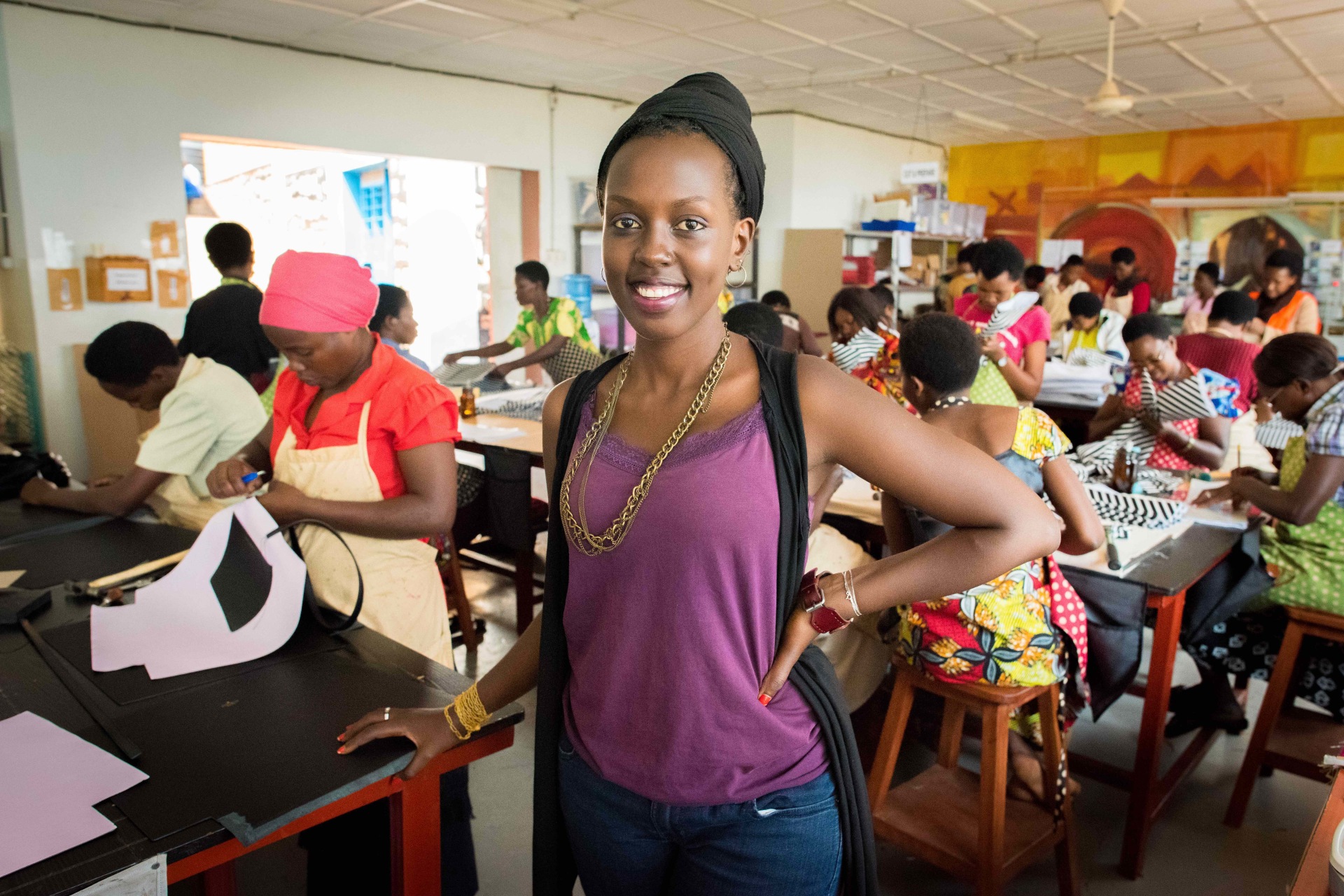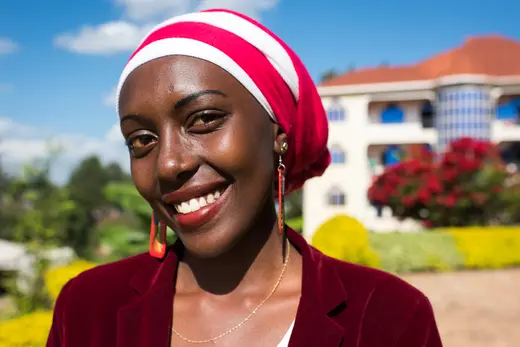Connecting Women’s Education to the Workforce in Africa
Voices from the Field features contributions from scholars and practitioners highlighting new research, thinking, and approaches to development challenges. This article is authored by Karen Sherman, president of the Akilah Institute and author of the forthcoming book Brick by Brick: What a Year in Rwanda Taught Me About Marriage, Motherhood, and the Gift of Choice.

By experts and staff
- Published
By
- Guest Blogger for Women Around the World
September is back-to-school month, a time of excitement and anxiety for many adolescents, who wonder if they are ready to meet the challenges of the coming academic year. It’s the same for students all across the globe.
Claudine Umulisa is one of them. She was accepted into the Evening & Weekend Program at the Akilah Institute, an all-women’s college based in Kigali, Rwanda. Claudine works by day as a sample maker at an employee-owned company called Abahizi Dushyigikirane Ltd, or ADC. Global fashion brand Kate Spade & Company assisted with the formation of ADC, which makes a line of handbags marketed under Kate Spade’s “on purpose” label.
Prior to joining ADC, Claudine owned a small jewelry shop in Kigali where she struggled to source materials and find customers. She plans to study information technology at Akilah, where she’ll gain skills in high demand at ADC and in the broader workforce across Africa. Claudine is lucky to have a job, but not because they’re scarce. According to a McKinsey & Company report, Africa’s rapidly growing economy is projected to create between 54 million and 72 million new wage-paying jobs by 2020. The problem is a serious talent gap on the continent. Nearly half of East African employers in a 2014 survey cited a lack of skills as the major reason they did not fill vacancies. Additionally, employers found that up to 63 percent of graduates from East African universities were “lacking job market skills.”
The simple truth is that secondary and higher education institutions in the region are not preparing their graduates for the workforce. Graduates in Africa will spend an average of five years searching for a job. And African women are particularly underserved when it comes to both secondary and higher education. Across sub-Saharan Africa, 75 percent of girls start school, but only 8 percent finish, and even fewer go on to the tertiary level. Only 64 women for every 100 men are enrolled in tertiary education. Pressure to marry early and have children explains part of this, but women face other barriers, as well: lack of female role models and opportunity, less access to financial services, entrenched patriarchy and restrictive norms, poverty, conflict, and epidemics.

Initiatives to transform girls’ education – Let Girls Learn, Girls CHARGE, and the UN’s Millennium and Sustainable Development Goals – are focused on getting and keeping girls in school, and understandably so. Education plays a major role in the advancement of women. We know that educated women are less likely to marry early, less likely to contract HIV/AIDS, and that each year of school boosts an African woman’s wages by 10 to 20 percent. Research from the World Bank positively correlates women’s education with per capita growth. But is education alone sufficient to change the status quo for women and girls around the world?
Amartya Sen, winner of the 1998 Nobel Prize in Economic Science, didn’t think so. He was among the first to tout the benefits of women’s economic participation in his seminal work on gender inequality, Development as Freedom. The solution to gender disparities, Sen argued, could be found in women’s education, yes, but also in their ownership rights and employment. Together they enable women to become empowered and independent; to have a life of their own choosing. Income-producing women reinvest up to 90 percent of their earnings in their families, compared with 30 to 40 percent for men. They have healthier children, with higher immunization rates and greater nutrition. Their daughters tend to stay in school longer, marry later, contribute higher wages, and have fewer of their own children. Sen concludes that “women are increasingly seen, by men as well as women, as active agents of change: the dynamic promoters of social transformations that can alter the lives of both women and men.”
Yet programs designed to educate women, and men, and connect them to the workforce are few. WISER in Kenya and the Global Livingston Institute in Uganda are two alongside the Akilah Institute in Rwanda. Akilah provides competency-based education programs linked to high-growth sectors and prepares graduates for careers and leadership roles. Based on a recent evaluation, 89 percent of alumnae secure and retain employment within one year of graduation and earn 12 to13 times the national median per capita income; 58 percent have received at least one promotion and/or salary increase since graduating; and 90 percent support at least one other family member financially, including paying for healthcare or school fees for siblings.
The program works because Akilah starts with and listens to employers, engaging them in defining needed skills and competencies. Leadership and soft skills, such as critical thinking, self-confidence, and teamwork, combined with market-relevant academic and career navigation skills ensure that students graduate career ready. Based on its new business and financial model, Akilah plans to open eight campuses across the region and serve more than 1 million students by 2031 so they can contribute to economic growth in their communities and countries.

What happens when women and girls do manage to complete their education but have to spend five years searching for a job, when they have next to nothing to show for it other than raised expectations, theirs and their parents’, of a different life? It does little to address the systemic barriers to girls’ education and economic participation.
Africa urgently needs effective education-to-workforce programs to connect women, and men, with the labor market, in order to capitalize on the tremendous untapped potential of its young people. Claudine Umulisa is truly one of the lucky ones. She has a job and an opportunity to further her education. Unfortunately she is still an anomaly among African women, who need both skills and income to fully participate in the 21st century.